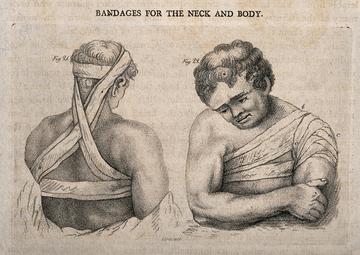Where next for Medical and Health Humanities at Oxford?
Sally Frampton and Louie Fooks look at the opportunities offered by medical humanities, how it is developing at Oxford, and ways that researchers can contribute and find support.
Oxford has a long tradition in medical humanities, but the field is changing rapidly. How do we want to adapt to take advantage of new opportunities and stay relevant to the discipline? And what sort of programmes and activities do we want to see develop in the future?
Medical or health humanities?
Medical humanities is a growing and vibrant field in the UK, with higher education institutions across the country increasingly establishing medical humanities programmes within their medical curricula and as specialised graduate courses.
It’s also a field that is ever-changing. Originating in the 1970s, medical humanities was initially built around the notion that the predominant biomedical model of western medicine required intervention and insights from the arts and humanities as a means of refining clinicians’ ability to empathise with their patients.
Medical humanities has since become a more diverse endeavour, with some advocating for the field to strengthen its alignment to activist politics, and respond to the challenges of community-based activism that seek to counter medicalised models of health. Others have called for a move away from ‘medical humanities’ to frame a more inclusive ‘health humanities’ which looks beyond the centrality of the doctor to think about the wide range of actors involved in healthcare, from nurses to carers to patient advocacy groups.
Medical humanities at Oxford
The relationship between medicine, health and society has long been a subject of study at Oxford. World-leading research centres such as the Wellcome Centre for Ethics and Humanities and the Wellcome Unit for the History of Medicine provide a focus for the humanistic study of medicine and the social determinants of health.
The medical curriculum here already draws on humanities – using artefacts and expertise from the Ashmolean Museum to teach elements of neurology – and has the ambition to do much more. Similarly, the medical humanities summer school established at Green Templeton College in 2018, has been designed to help sixth-form and medical students explore the connections between humanities and science.
Researchers across the university are also offering insights into healthcare challenges through ethical, philosophical or other conceptual approaches from humanities disciplines.
- Dr Trish Greenhalgh and colleagues, for example, have challenged what is considered ‘good evidence’ and helped transform the field evidence-based medicine.
- A collaboration between zoology, history, philosophy, psychology and medicine, coordinated by the Oxford Martin School, is looking at the role of collective responsibility for infectious disease control with the aim of developing policy recommendations for collective action.
- GP and primary care researcher Andrew Papanikitas is working to strengthen the provision of Medical Ethics and Law within GP training through research, publication, and other interventions.
Humanities and Healthcare: networking, information and support
A ‘Humanities and Healthcare’ networking, information and support event on 12 June (funded by HEIF and organised by the Humanities and Healthcare team) will bring together those interested in medical and health humanities to discuss challenges and opportunities for the field.
Beyond the immense pressure on the humanities to prove its relevance to everyday life, the event will be an opportunity to explore how those working in philosophy and ethics, history and literature, theology, art and other disciplines can connect with medical researchers, clinicians, patients and others involved in healthcare – and what all parties can gain from collaboration.
We’ll consider such questions as: Can collaboration make us more reflective in our work? Can it help shape our research interests in new and innovative ways? How do we maximise research impact from the overlap between the disciplines? And how do we ensure wider benefit from our research, by building in policy engagement from the proposal stage?
We look forward to being joined by a wide range of researchers and practitioners to help us address these questions – and to kick-start a wider discussion about Oxford’s ambition for medical and health humanities.
We’ll report back on the day’s discussion on the TORCH blog and further networking and capacity-building events are planned for Michaelmas Term. We hope that all those interested in medical and health humanities across the university will engage in and contribute to the discussion on its future direction in the coming months.
Sally Frampton and Louie Fooks are part of the Humanities and Healthcare team, supported by the Higher Education Innovation Fund and the Wellcome Trust Institutional Strategic Support fund. Sally is able to offer advice to humanities researchers and others on developing medical humanities research proposals. Contact her on sally.frampton@humanities.ac.ox.uk.
Louie is able to advise humanities researchers on policy planning and communications. Contact her on louie.fooks@theology.ox.ac.uk.
The Humanities and Healthcare initiative is led by Joshua Hordern (Associate Professor of Christian Ethics, joshua.hordern@theology.ox.ac.uk, www.healthcarevalues.ox.ac.uk).



